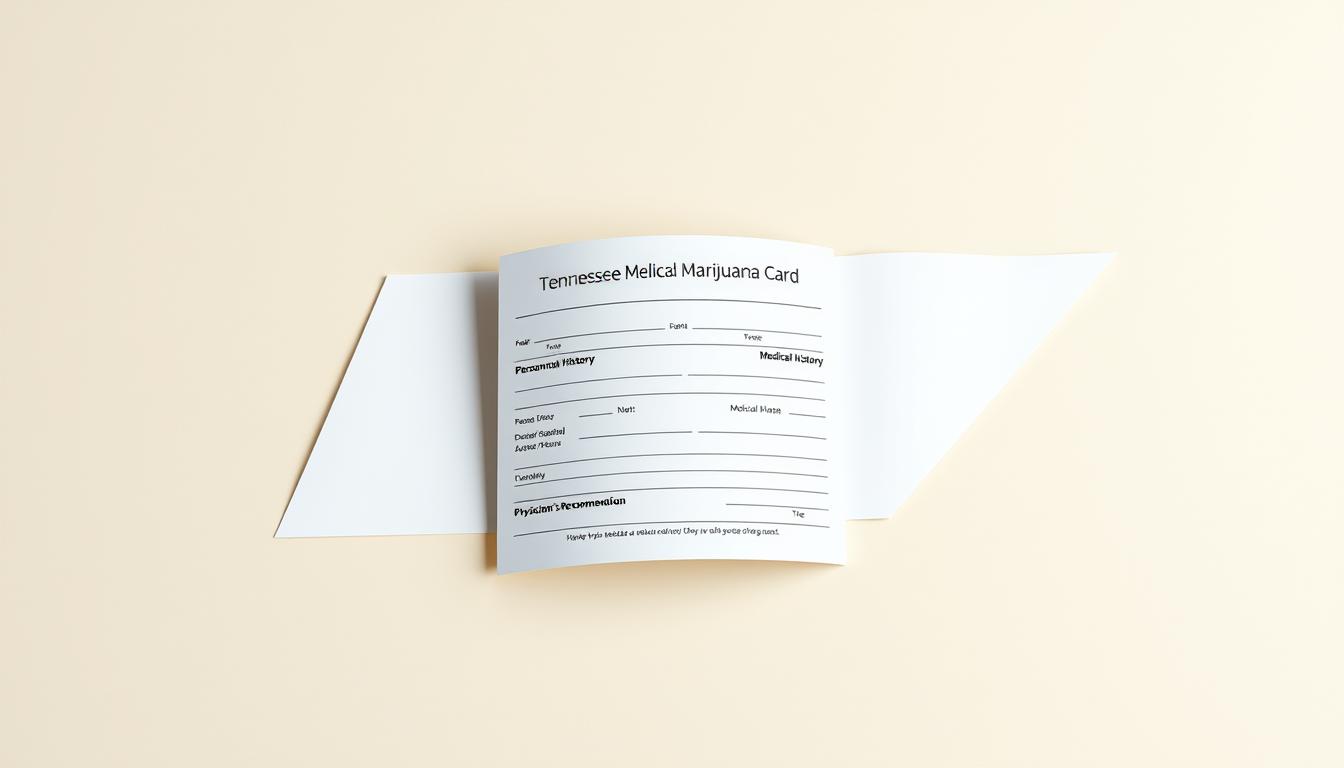The talk about cannabis laws is getting louder in North Carolina. Many are curious about the state of medical marijuana in the area.
Right now, North Carolina doesn’t have a set medical cannabis program. But, there are hints that things might change soon.
This guide aims to give a quick look at the legal situation. It’s here to help those trying to make sense of medical marijuana in the area.
With cannabis laws always changing, it’s important to stay up to date. This guide will break down the law and what it means.
Understanding Medical Marijuana
Medical marijuana is a treatment option for many. It helps with chronic pain, severe nausea, and seizures.
What is Medical Marijuana?
Medical marijuana uses cannabis or its cannabinoids for health issues. It’s known for its therapeutic benefits, like easing pain and reducing nausea.
There are various medical marijuana treatment options. These options meet different patient needs. They include different cannabis products.
How Does it Work?
Medical marijuana works by interacting with the body’s endocannabinoid system. This system controls many body functions. The cannabinoids in marijuana, like THC and CBD, help with symptoms of different health conditions.
Knowing how medical marijuana works helps patients make better choices. They can weigh its benefits and risks.
Legal Definitions in North Carolina
In North Carolina, medical marijuana laws are clear. The state has rules, but the Eastern Band of the Cherokee Nation has its own program. This offers another option for some.
Patients need to know the laws about medical marijuana in their area. This ensures they follow local rules.
History of Medical Marijuana in North Carolina
North Carolina’s journey with medical marijuana has seen big changes in laws and public views. The state’s path with medical cannabis has been shaped by debates on its benefits and legal issues.
Key Legislative Milestones
In 2023, the North Carolina Senate passed a medical cannabis bill. But the House of Representatives didn’t take it up. This was a big step, even if the bill didn’t become law. Advocates for medical marijuana keep pushing for change, showing how cannabis can help patients.
The history of medical marijuana laws in North Carolina shows slow but steady progress. It’s important to understand these legislative efforts to know where medical cannabis stands today.
Perspectives on Medical Marijuana Adoption
There’s a lot of support for medical cannabis in North Carolina, mirroring a national trend. As opinions change, they will shape the future of medical marijuana laws in the state.
The adoption of medical marijuana depends on many things. These include public opinion, medical research, and what other states have done. North Carolina will consider these as it deals with cannabis laws.
Looking at medical marijuana in North Carolina shows it’s a complex issue. It involves laws, medicine, and society. As the state moves forward, understanding these parts will be key to shaping medical cannabis laws.
Current Legal Status
Understanding the legal status of medical marijuana in North Carolina is complex.
The state doesn’t have a formal medical cannabis program. Yet, there are exceptions and ongoing discussions that shape the legal scene.
Overview of Medical Marijuana Laws
North Carolina doesn’t have a full medical marijuana program. But, the Eastern Band of Cherokee Indians has one on their tribal lands.
This program lets tribal members and non-members in the Qualla Boundary use medical marijuana. If you want a medical marijuana card, you need to look into other options and know the legal rules.
Penalties for Illegal Use
Even without a state-wide program, North Carolina has laws against illegal cannabis use.
Possession of marijuana can lead to big fines and jail time, based on how much you have.
If you’re searching for dispensaries in North Carolina, knowing the legal status and possible penalties is key. This is because accessing medical marijuana outside the tribal program can be risky.
Conditions Eligible for Medical Marijuana
The state of North Carolina has outlined particular medical conditions that can be treated with medical marijuana. This provides relief to patients suffering from various debilitating diseases.
Approved Medical Conditions
In North Carolina, qualifying conditions for medical marijuana include chronic pain, severe nausea, and terminal illnesses. These conditions have a big impact on a patient’s quality of life. Medical marijuana is seen as a viable treatment option to alleviate symptoms.
Patients with these conditions can benefit from the therapeutic effects of medical marijuana. It has been shown to provide relief and improve the overall well-being of individuals dealing with these health issues.
Importance of a Recommendation
A key step in accessing medical marijuana is getting a recommendation from a qualified healthcare provider. This recommendation is essential. It confirms that the patient’s condition is eligible for medical marijuana treatment under North Carolina’s laws.
The process involves a thorough evaluation by a licensed physician. They assess the patient’s condition and determine if medical marijuana is a suitable treatment option. This step is vital in ensuring that medical marijuana is used responsibly and for legitimate medical purposes.
By understanding the conditions eligible for medical marijuana and the importance of a healthcare provider’s recommendation, patients in North Carolina can make informed decisions. They can potentially benefit from the therapeutic effects of medical marijuana.
How to Obtain a Medical Marijuana Card
North Carolina has made it easy for patients to get a medical marijuana card. This ensures those who need it can use it legally. To get a card, you need to know what you qualify for and how to apply.
Eligibility Requirements
To get a medical marijuana card in North Carolina, you must meet certain criteria. First, you must be a resident of North Carolina. You’ll need to show proof of where you live.
Next, you need to have a qualifying medical condition. The state has a list of approved conditions. These include chronic pain and epilepsy.
Lastly, you must get certification from a registered physician. This is important to make sure medical marijuana is right for you.
Application Process
Getting a medical marijuana card involves several steps. First, you should consult with a registered physician to get certified. They will check if you have a qualifying condition.
After getting certified, you need to prepare the necessary documentation. This includes proof of where you live, your medical records, and the doctor’s certification.
The next step is to submit the application to the state with the required fee. Make sure all your information is correct and complete to avoid delays.
After you apply, you’ll need to wait for your application to be processed. The time it takes can vary. So, apply early if you need the card soon.
By following these steps and meeting the requirements, North Carolina residents can get a medical marijuana card. This way, they can access the treatment they need.
Registered Medical Marijuana Providers
To get certified for medical marijuana in North Carolina, you need to see a registered provider. These doctors check if you qualify for medical marijuana under the state’s cannabis laws.
First, find a doctor who is licensed and registered with the state’s program. Websites like Hemponix and Leafwell can help you find certified doctors.
List of Licensed Physicians
You can find a list of licensed doctors on the state health department’s website or on medical marijuana platforms. Make sure the doctor is both licensed and registered with the state’s program.
Look for a doctor with experience in your condition and good patient care. Patient reviews and testimonials can give you a good idea of a doctor’s quality.
How to Choose the Right Provider
Choosing the right doctor involves a few things. Make sure they have experience with your condition. Also, understand how they evaluate patients and communicate with them.
Consider the doctor’s location and if they offer telemedicine. This is helpful for those who have trouble getting to the doctor.
By picking the right doctor, patients in North Carolina can get the care they need. This helps them use the state’s medical marijuana program well.
The Role of Dispensaries
Dispensaries play a key role in North Carolina’s medical marijuana scene. They are the main place where patients get medical marijuana. They offer a variety of products to meet different needs and likes.
Understanding Medical Marijuana Dispensaries
Medical marijuana dispensaries are places where you can buy cannabis products if you’re a qualified patient. In North Carolina, the Eastern Band of Cherokee Indians runs a dispensary. It’s open to tribal members and some North Carolinians. These places are important for making sure patients get safe, tested cannabis.
Dispensaries have many products like oils, tinctures, and edibles. Each has its own potency and effect. This lets patients pick what works best for them.
Finding a Dispensary Near You
Finding a dispensary in North Carolina means knowing the laws and where to go. The Eastern Band of Cherokee Indians’ dispensary is a main spot.
To find a dispensary, patients can:
- Visit the Eastern Band of Cherokee Indians’ website for dispensary info.
- Reach out to local groups for help finding medical marijuana.
- Talk to a medical marijuana doctor for advice.
It’s important to buy from authorized places to ensure the products are safe and of good quality.
Forms of Medical Marijuana Available
It’s important to know the different types of medical marijuana. Each type is designed for specific needs and preferences. This makes treatment more effective.
Types of Medical Marijuana Products
Medical marijuana comes in many forms, like edibles, tinctures, topicals, and vaporizers. Edibles are foods with marijuana, making them easy and discreet to use. Tinctures are strong extracts that can be taken under the tongue or mixed into food and drinks.
Topicals are creams, balms, and salves applied to the skin. They provide relief without making you feel high. Vaporizers heat marijuana without burning it, which might be safer than smoking.
With so many options, patients can pick what works best for them. This depends on their condition and lifestyle.
Understanding Dosage
Finding the right dosage of medical marijuana is key. It helps get the benefits without unwanted side effects. The right dose varies based on several factors.
Things like the product’s strength, how you use it, and your tolerance matter. Knowing these helps patients make better choices for their treatment.
Risks and Benefits of Medical Marijuana
When thinking about medical marijuana, it’s key to look at both its benefits and risks. It might help with many health issues, but it can also cause problems.
Medical marijuana could be good for some people. It might help with chronic pain, nausea, and muscle spasms, studies say.
Potential Health Benefits
Here are some good things about medical marijuana:
- Relief from chronic pain
- Less nausea and vomiting
- Muscle relaxation and fewer spasms
- It might help with mental health issues too
But, it’s also important to think about the downsides of using medical marijuana.
Risks and Side Effects
Medical marijuana can cause side effects like dizziness, dry mouth, and memory problems. It might also lead to serious issues like psychosis or addiction.
Here are some of the risks and side effects:
- It can make your heart rate and blood pressure go up
- It might cause breathing problems, mainly for smokers
- There’s a chance of becoming dependent or addicted
- It could interact with other medicines
It’s best to talk to a doctor about the good and bad of medical marijuana. This way, you can make a smart choice about using it.
Patient Experiences
Many in North Carolina have found relief with medical marijuana. They share stories of better health and happiness. These accounts show the benefits of medical marijuana and its real-life effects.
Testimonials from Medical Marijuana Users
People from all backgrounds have shared their medical marijuana experiences. For example, a person with chronic pain found relief with a certain strain. They said, “It has changed my life,” showing its positive impact.
Another person with post-traumatic stress disorder (PTSD) found it helped their symptoms. This allowed them to take back control of their life.
Real-Life Impact on Conditions
Patients’ stories show how medical marijuana helps with different health issues. It’s used for chronic pain management and to ease anxiety and depression symptoms. It’s a valuable treatment for many.
These testimonials show medical marijuana improves both physical and mental health. By sharing, patients help spread the word about its benefits in North Carolina.
- Improved symptom management
- Enhanced quality of life
- Increased sense of well-being
As more people share their experiences, it’s clear medical marijuana can greatly improve lives in North Carolina.
Future of Medical Marijuana in North Carolina
The future of medical marijuana in North Carolina is looking bright. Talks about changing cannabis laws are heating up. Everyone is waiting to see what changes might come.
Legislative Reforms on the Horizon
North Carolina might change its view on medical marijuana soon. There are bills in the works that could make it easier for people to get medical cannabis. This could be a big step forward for patients.
Shifting Public Opinion
More and more people in North Carolina want medical marijuana to be legal. As they learn about its benefits, they’re pushing for change. This growing support could help change the state’s laws.
Looking ahead, medical marijuana in North Carolina seems to be on the right path. With new laws and more people supporting it, the future looks bright.


